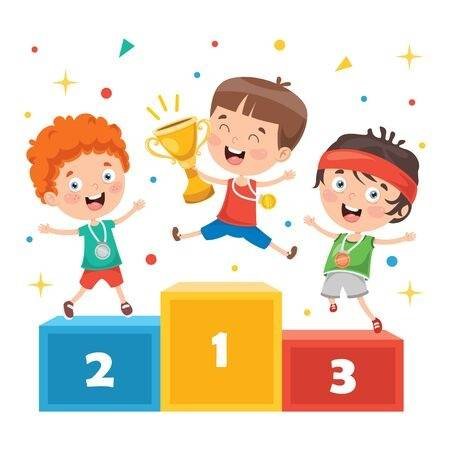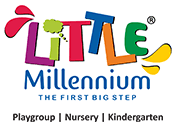
Competition
While surfing through the net I chance upon this picture (pasted above) and that begins a debate within my mind.
It is human nature to compete. Competition is a good form for survival. The newspapers, media, hoardings, advertisements are copiously overflowing with multiple brands/ individuals/ products competing against each other. And this is what our children see, read and experience everyday. Competition against each other.
But if we talk about education & schools, should the focus of all learning be centred around competition?
In schools, should the focus of all achievement be centred around competition?
Schools are the nurturing grounds for skills, values, academic expertise, friendships, community service, camaraderie, sharing and so on. The first lesson that a child learns outside the home is on the school grounds. Kindergartners experience their first singing, rhyming, dancing experience at school and if we turn each learning into a competition, how good is that for the child?
Children develop their gross motor & fine motor skills at Preschool .They learn to balance, jump, run, skip, dodge and catch. Should we turn each of their dance moves, stage moves, dabbing skills, running, colouring skills into competition? How good is that for the child?
Children are developing their language skills at Preschool and picking up new rhymes and songs and stories. Should we turn their entire learning experience into a competitive one? How good is that for the child?
What they learn at ages 0 – 6 is actually the roots of all life skills and yet we hurry to pitch their colouring skills against each other, their writing skills against each other, their recitation skills against each other.
Firstly, no two children are alike.
Secondly, each child learns at his or her own pace.
So it follows that Every Child is Unique. So how do we set up competition benchmarks between two children that are completely unique from each other?
A certain amount of competition is healthy and natural. It helps us develop a perspective and set a few goals. But to use this as a constant so early in a child’s life proves detrimental to our students in the long run. It is no wonder then, that we have anxiety, panic attacks and depression within our Formal classrooms. Each learning experience need not turn into a competition. If we indulge in too many competitions at the very beginning of a child’s school life, it robs the joy, the pleasure and the thrill of attending school. It deprives the child of bonding opportunities with friends. It robs the joy out of a pure learning experience.
One of the best ways to beat this is to shift the focus.
Shift the focus from competing against others to competing against self.
Train yourself & your child to think on these lines:
| • Did I read better than yesterday? |
| • Did I run faster than day before? |
| • Did I share more than last week? |
| • Did I take lesser time to solve my puzzle in my second attempt? |
| • Did I learn a few more dance moves this week? |
| • Did I laugh more than what I did yesterday. |
And of course:
| • Did I feel more comfortable with Maths this week? |
| • Did I score better in Science this time than my last test? |
| • Did I learn a new sport this year? |
| • Did I cultivate a new hobby this year? |
If we focus on a pattern of self improvement rather than competition, then our children will naturally develop better habits and values.
There will be less of envy, jealousy and hatred.
Our children will strive to be better version of themselves each day.
And that’s what the true aim of education is. To create a better self and to be lifelong learners.
To practice the same will of course be a journey and not a day’s affair. But let us start thinking differently.
Let us make a beginning.
Happy parenting!
